 |
 |
 |
| |
REMEDINAL Grant
"Restoration and conservation of ecosystems of Madrid: answers to global change. Restauración y conservación de los ecosistemas madrileños: Respuesta frente al cambio global". Programa de Actividades de I+D de la Comunidad de Madrid (Consejería de Educación) REMEDINAL2 -CM (S2009/AMB-1783).
Investigador Principal: Adrian Escudero (URJC). |
|
 |
 |
 |
| |
|
|
| |
|
|
| |
REMEDINAL-2 se define como una Red de Grupos de Investigación de reconocido prestigio dentro del área de recursos naturales y tecnologías ambientales, y más concretamente, en la evaluación de impacto ambiental y restauración ecológica del medio natural.
La Red está promovida por la Comunidad de Madrid, a través de la convocatoria de Programas de Actividades de I+D entre grupos de investigación, cofinanciada por la Unión Europea a través del Fondo Social Europeo. |
|
| |
|
|
| |
|
|
| |
|
|
| |
Actualmente, REMEDINAL-2 está formada por un total de ocho grupos de investigación pertenecientes a las principales universidades de la Comunidad de Madrid (URJC, UAH, UAM, UCM y UPM) y dos centros de investigación públicos, CSIC y el Centro de Investigación Forestal (CIFOR) del INIA, con el apoyo tecnológico de dos laboratorios especializados, NUTRILAB y CULTIVE, pertenecientes a REDLAB (Red de Laboratorios de la Comunidad de Madrid).
Todos estos grupos desarrollan un ambicioso proyecto aunando esfuerzos, capacidades, medios, conocimientos y experiencia dentro de un programa conjunto de actividades, con unos claros objetivos comunes. |
|
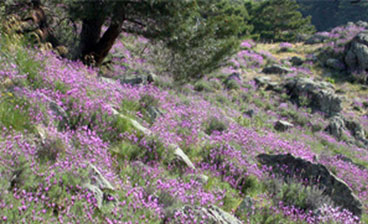 |
|
|
| |
|
|
| |
Objetivos científicos:
-
Reforzar y complementar la capacidad y calidad de los Grupos de investigación participantes, mediante la intensificación de la colaboración y el trabajo en equipo.
- Ofrecer formación a personal investigador de primera línea en el ámbito de restauración ecológica.
- Ofrecer asistencia técnica a las administraciones relacionadas con la gestión ambiental de la Comunidad de Madrid y servir de referente para el resto de las regiones tanto en el ámbito nacional como internacional.
- Ofrecer asistencia y servicios a instituciones públicas y empresas en todo lo referente al análisis de impacto medioambiental, a los efectos de la degradación debido a la actividad humana y a la elaboración de proyectos de restauración ecológica.
|
|
| |
REMEDINAL es un consorcio de grupos de investigación que desarrolla un Programa de actividades de I+D en el área de tecnologías ambientales, específicamente restauración ecológica y conservación de la biodiversidad en el contexto de cambio global.
Está financiado desde 2006 por la Comunidad de Madrid y la Unión Europea, a través de fondos FEDER y Fondo Social Europeo (FSE).
|
|
| |
|
|
| |
|
|
| |
VULGO Grant
"Vulnerabilidad de poblaciones de plantas leñosas mediterráneas al cambio global: efectos interactivos de la marginalidad y la fragmentación sobre su regeneración" (VULGLO). Referencia CGL2010-22180-C03-03. /BOS Ministerio de Ciencia e Innovación. |
|
 |
 |
 |
| |
|
|
| |
|
|
| |
|
|
| |
|
|
| |
|
|
| |
|
|
| |
Summary
Effects of global change drivers on the local persistence of plant populations should be interactive rather than additive. In particular, climate change and human-driven fragmentation are expected to interact by both hampering migration routes following climate change and by modifying local selective pressures derived from both abiotic and biotic interactions. Mediterranean woody plants depend on keystone mutualists for successful regeneration. Mutualisms are often conditional, and the outcome depends on climatic conditions (e.g. facilitation/competition with nurse shrubs) and on habitat structure and biogeographic traits influencing the abundance and distribution of pollinators, herbivores and seed dispersers. A large body of literature demonstrates the effects of fragmentation on the populations and communities of both nurse shrubs and keystone animal mutualists of woody plants. Fragmentation effects tend to vary predictably with marginality within species' ranges, at least for birds, thus giving rise to species-specific interactions between marginality and fragmentation within focal plant's ranges for the community of keystone mutualists that have been little explored to date. Insular-continental effects will even enlarge these geographical changes in the structure and composition of keystone mutualist communities due to species impoverishment of insular biotas. Changing interactive effects of mutualist communities would likely influence adaptive responses of individual plants (phenotypic and ecological plasticities) to varying functional heterogeneity of landscapes as 'perceived' by plant seeds, seedlings and recruits. VULGLO is aimed at understanding how fragmentation and insularity influences keystone mutualist communities, how these influences vary within focal plant's species ranges, and how changing interactive scenarios modulate plant's adaptive responses at the individual level. This understanding is crucial to predict responses of woody plant populations to global change.
VULGLO combines plant and animal demography with plant ecophysiology, evolutionary ecology and community ecology to unveil direct and indirect effects of two main drivers of global change (climate and fragmentation) on the effective recruitment of woody plants. Holm Oak (Quercus ilex) is chosen as the main target plant species due to its ecological relevance and to the information and experience available in the research group, which allows a realistic approach to a truly multidisciplinary research. Results in the Iberian Peninsula will be explored together with those in Balearic Islands to estimate the influence of insularity on the network of interactions and effects between actors and drivers
|
|
| |
|
|
| |
|
|
| |
CONSOLIDER-MONTES Grant
"Spanish woodlands and global change: threats and oportunities" (MONTES).
CONSOLIDER (CSD2008-00040) |
|
 |
 |
 |
| |
|
|
| |
|
|
| |
|
|
| |
|
|
| |
Objectives: |
|
| |
|
|
| |
|
|
| |
|
|
| |
EU BACCARA Grant
"Restoration and conservation of ecosystems of Madrid: answers to global change. Restauración y conservación de los ecosistemas madrileños: Respuesta frente al cambio global". Programa de Actividades de I+D de la Comunidad de Madrid
(Consejería de Educación) REMEDINAL2 -CM (S2009/AMB-1783).
Investigador Principal: Adrian Escudero (URJC). |
|
 |
 |
 |
| |
|
|
| |
|
|
| |
|
|
| |
|
|
| |
BACCARA has as main goal to build scientific foundations for developing tools allowing forest managers and policy makers to evaluate risk of European forest biodiversity and productivity loss under climate change.
The scope of BACCARA encompasses forest composition at multiple trophic levels, i.e. assemblages of forest symbionts (mycorrhiza), producers (keystone tree species), consumers (herbivores and pathogens) and their predators. This 4 year project will construct a 3-dimensional risk assessment model linking climate change, functional diversity, and forest productivity:
BACCARA gathers 15 European organisations and the University of Pekin.
|
|
| |
|
|
| |
|
|
| |
EU FUNDIV Grant
"Functional significance of forest biodiversity in Europe" (FUNDIV). Reference CE: FP7-ENV-2010. Project number 265171. |
|
 |
 |
 |
| |
|
|
| |
|
|
| |
|
|
| |
|
|
| |
Many people perceive Biodiversity, the variety of life in all its forms, as enrichment and would agree that it has a value by itself. Does biodiversity have, on top of that, an effect on the functions and services of an ecosystem, as productivity and stability or nutrient, carbon and water cycling? This question is addressed by scientists within a European research project FunDivEUROPE on the functional significance of biodiversity in European forests. |
|
| |
|
|
| |
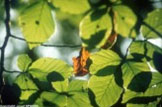 |
|
Biodiversity research of the last 15 years could demonstrate that multiple functions and services of an ecosystem are influenced by the number of species within this system. Most of these findings are based on research within grassland systems. For about five years it is evident that science has to make the next big step and address those ecosystems that control a good portion of the carbon, nutrient and water balances of the earth – the forests. FunDivEUROPE will tackle the challenge. |
|
|
| |
|
|
| |
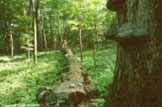 |
|
Within this project that started in October 2010 – the international year of biodiversity – the University of Freiburg and its partners, 24 institutions from 15 countries, will work on quantifying the influence of biodiversity on this ecosystem functions and services and to deliver timely, relevant and understandable information to policymakers and stakeholders about forest biodiversity and ecosystem services. To achieve this, scientists will combine field data sampled on all European experimental sites on tree diversity and on a newly created network within established forests, with the analysis of forest inventory data. |
|
|
| |
|
|
| |
|
|
| |
ECOCLIM Grant
Ecophysiological processes that limit the capacity of
woody Mediterranean species to cope with climate change |
|
 |
 |
 |
| |
|
|
| |
|
|
| |
The main objective of ECOCLIM is to know the growth constrains which appear in marginal populations of Mediterranean tree and shrub species, and to understand which ecophysiological processes limit the species’ capacity to effectively respond to the climatic change. This main objective is partitioned into four particular objectives to be fulfilled through the development of ten specific tasks which will be done in continental (Parque Natural del Alto Tajo) and other Mediterranean areas in collaboration with the rest of sub-projects within the coordinated project Forests at the limit “Bosques al limite” (BOSALIM).
|
|
| |
|
|
| |
|
|
| |
|
|
| |
Team: F. Valladares, A. Delgado, O.Godoy, S. Matesanz, M. Maestro, G. Montserrat, A. Traveset, O. Atkin |
| |
|
|
| |
|
|
| |
EXPERTAL Grant
Experimental bases for the ecological sustainability of motorway slopes. |
|
 |
 |
 |
| |
|
|
| |
|
|
| |
This project is an experimental approach to the issues observed in a previous project (TALMED aimed at understanding herbaceous communities growing on motorway slopes. The final goal is to improve the ecological restoration of these new, anthropogenic systems.
|
|
| |
|
|
| |
|
|
| |
|
|
| |
Team: F. Valladares, A. Delgado, O.Godoy, S. Matesanz, M. Maestro, G. Montserrat, A. Traveset, O. Atkin
|
|
| |
|
|
| |
|
|
| |
RASINV Grant
Functional traits and phenotypic plasticity of invasive plants. |
|
 |
 |
 |
| |
|
|
| |
|
|
| |
The introduction of exotic species by humans is causing severe changes to the world´s ecosystems. In particular, the introduction of invasive species (those with a larger capacity to occupy the space and monopolize the resources than native species) currently represents a major threat to biodiversity (second only to habitat loss) and imposes great economic costs to our society. Unfortunately, the impact of biological invasion is likely to worsen in the decades to come, particularly when combined to other processes of global change. In the current project, we aim at identifying the factors that determine the risk of biological invasions in vegetal communities, paying attention to both the determinants of invasiveness of exotic species and their modulation by elements that determine the invasibility of receptive ecosystems. Specifically, we propose to test these hypotheses:
|
|
| |
|
|
| |
|
|
| |
|
|
| |
(1) The invasiveness of a species is determined by certain biological traits, such as its dispersal capacity, life history, competitive ability, or the presence of anti-herbivore defences.
(2) Invasive species have high levels of phenotypic plasticity, which allows them to grow in a broad variety of environments despite their limited genetic variability (usually associated to the initial colonization events).
RASINV is part of the coordinated project RINVE led by A. Traveset.
Team: F. Valladares, A. Delgado, O.Godoy, S. Matesanz, M. Maestro, G. Montserrat, A. Traveset, O. Atkin |
| |
|
|
| |
|
|
| |
ECOFIARB Grant
Global change and plant responses:
ecophysiological bases for
the conservation of the diversity of Mediterranean trees and
shrubs. |
|
 |
 |
 |
| |
|
|
| |
|
|
| |
Mediterranean vegetation
is under unprecedented pressure due to the combined effects
of changes in land use and climate change. This project has
two main objectives:
| |
 |
to assess
the relative sensibility of a large group of Mediterranean
woody species to global change, |
| |
|
|
| |
 |
to overcome
some current technical limitations to prevent habitat
degradation and to restore the biodiversity and the
functionality of Mediterranean plant communities by
an efficient revegetation with autochthonous woody species.
|
|
|
| |
|
|
| |
|
|
| |
|
|
| |
A group of 7 scientists
with expertise in different fields of plant ecology (ecophysiology,
phenology, and reproductive biology) has established a consortium
with 4 enterprises (3 small and medium enterprises, SMEs,
and one big enterprise) to achieve these goals.
The consortium has arranged the following 6 groups of activities
(G):
G 1) Creation of a data base with functional grouping,
functional morphology, ecophysiology and phenology of 55
woody Mediterranean species.
G 2) and 4) Experiments of phenotypic plasticity and ecophysiology
to determine the relative vulnerability of the species to
environmental changes, and the influence of the different
water, nutrient and light treatments on both the quality
of the plant produced and the success of the transplant
performance in the field.
G 3) Experiments of root growth (phenology, influence of
abiotic and internal factors) to understand its influence
in the success of the field plantation and to elucidate
the optimal timing for planting.
G 5) Reproductive biology and multiplication of difficult
species in the nursery.
G 6) Dissemination of the scientific results and general
achievements of the project.
The 8 most innovative aspects of the project are:
1) Multidisciplinary approach to the effect of global change
on vegetation
2) Study of species not included in revegetation projects
to date
3) Co-ordination of Public Research Institutions and enterprises,
which ensures high standards on both the basic and the applied
sides of the project
4) Addressing specific technical problems
5) A combined study of both the aerial and the underground
parts of the plant
6) Application of the concept of phenotypic plasticity to
evaluate the relative vulnerability to global change
7) Combination of nursery with field plantations
8) Involvement of a SME specialised in the dissemination
of the information beyond the academic environment.
|
|
| |
|
|
| |
ECOFIARB is a grant in collaboration with
the following companies/enterprises: |
|
| |
|
|
| |
|
|
| |
|
|
| |
|
|
| |
TALMED Grant
Ecological bases for the restoration
of plant cover of motorway
slopes in Mediterranean regions |
|
 |
 |
 |
| |
|
|
| |
|
|
| |
The severe environmental
impact caused by public works such as roads, railways, canalisations,
quarries, etc., has prompted a strong social opposition. Thus,
there is an urgent need for evaluating and restoring the environmental
damages caused by such works. |
|
| |
|
|
| |
|
|
| |
|
|
| |
However, there is a certain scepticism about the efficiency
of vegetation restoration in roadcuts, in accordance with
the results obtained so far in the Mediterranean Region,
where long periods of drought are associated with intense
rainfall events that produce high erosion rates. The high
losses of seeds by erosion and predation, the high rates
of plant mortality due to drought or nutrient deficiency
and the low ability of many species usually used to expand
their populations are responsible for the bad results obtained
with seed mixtures composed of very few species that proved
to be successful in the rest of Europe. When complements
are added to the seeds in order to avoid these problems,
the economic cost per unit area increases significantly.
The evaluation in TALMED of the species currently used in
roadcut restoration and the selection of new species in
accordance with their morphological and functional characteristics
and their plasticity, under different lithological and climatic
scenarios of the Mediterranean Region, will improve the
efficiency and reduce the costs of vegetal restoration of
roadworks in this region.
|
|
| |
|
|
| |
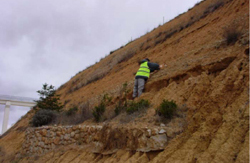 |
|
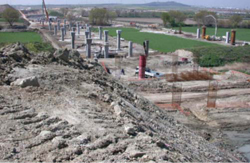 |
Study
of the erosion and the vegetation in a motorway slope
(A3 motorway, Valencia) |
|
View
of gypsum-rich hills in the south of Madrid affected
by the construction of the M-50 motorway. Studies of
ecological restoration are in progress at this site. |
|
|
| |
|
|
| |
The objectives of TALMED are:
A) to produce a list of species
useful for the vegetal restoration of roadcuts that takes
into account the success of commercial species and of the
species that colonizes spontaneously the roadcuts.
B) to identify the morphological and
functional features and the phenotypic plasticity that characterise
the species able to succesfully colonise Mediterranean roadcuts
in order to obtain a predictable model that allows the selection
of species in other environmental conditions.
C) to optimise seed mixtures in a Mediterranean
context where seeding treatments haven’t been successful
so far. In this objective, there will be a link between the
research group and the persons in charge of environmental
protection of the construction company Ferrovial-Agroman.
The degree of innovation of TALMED results from the lack of
investigations that have evaluated the success of seeding
treatments with commercial mixtures. TALMED is relevant not
only because it fills a gap in scientific knowledge in this
field, but also and especially because it establishes a balance
between the social demand (protection and restoration of the
environment) and the offer coming from the administration
and the companies.
|
|
| |
|
|
| |
TALMED is a grant in collaboration with: |
|
| |
|
|
| |
|
|
| |
|
|
| |
|
|
